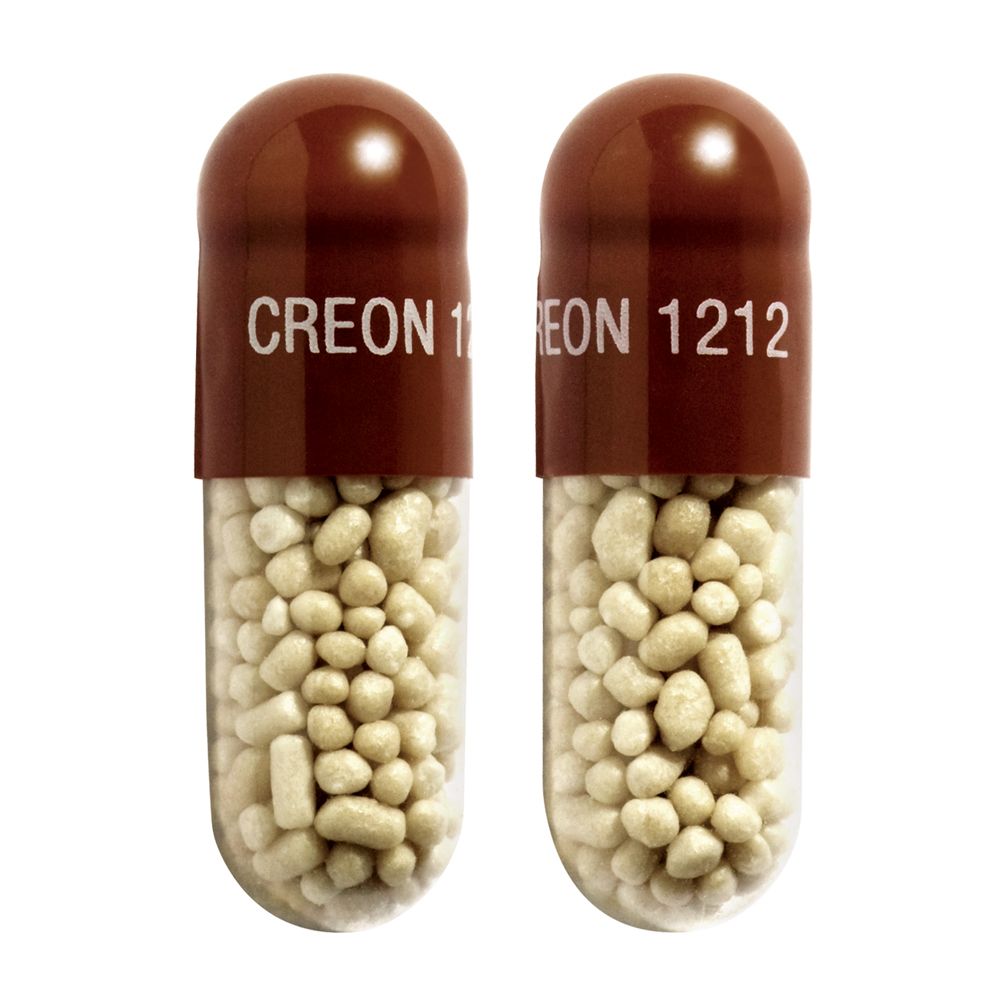Pancreatic Insufficiency
Approximately 90% of people with CF are affected by pancreatic insufficiency, meaning the pancreas is unable to produce enough digestive enzymes needed for the normal digestion of fat, protein and carbohydrates in food. Many individuals with CF are born with pancreatic insufficiency, whilst others may develop this later in life, particularly after multiple episodes of pancreatitis.
PERT
Individuals with pancreatic insufficiency require pancreatic enzyme replacement therapy (PERT) to assist with the digestion and absorption of nutrients from food. For the small percentage of people who are pancreatic sufficient, enzymes are not required.
Pancreatic enzyme supplements come in capsule form. Enzyme dosages are individualised and should be reviewed with your CF dietitian at least every six months. The main goal of treating pancreatic insufficiency is to assist fat digestion and absorption, improve weight gain and growth and prevent nutrient deficiencies. The most commonly used enzyme in Australia is Creon®.
It is important to remember to:
- Take your enzymes with all food and drink, with the exception of some simple sugars (e.g. fruit, lollies, jelly, fruit juice/cordial/soft drink/water, clear soups, tea and coffee with a dash of milk).
- Swallow enzyme capsules whole- do not crush or chew.
- Take the right number of enzymes- based on the amount of fat in the meal or snack.
- Take them at the right time- enzymes only work for around 30 minutes, so if you are eating slowly or snacking over a long period of time you will need to take more enzymes after the 30 minutes is up.
- Store enzymes correctly- in an airtight, cool and dry place. Ensure capsules have not exceeded the expiry date.
How do I know how many to take?
Enzymes come in different strengths. Individual enzyme needs will be recommended by your CF care team and will be dependent on your level of pancreatic insufficiency. Many people will have a fixed dose (e.g. the same number of enzymes capsules per meal and per snack), whilst others may calculate their dose depending on the food they eat. To work out the dose required for a particular meal or snack, you may need to calculate the amount of fat in the food. Below is a rough guide of how many grams of fat may be covered by Creon®.
This may be used as a starting point to estimate the number of enzyme capsules required per meal or snack. It is recommended that you further discuss your enzyme routine with your dietitian to achieve optimal effect. Creon® capsules are available in multiple sizes to help you optimise your dose and reduce the pill burden associated with treatment.
- 1x Creon® 10,000 capsule per 6-8g fat
- 1x Creon® 25,000 capsule per 15-20g fat
- 1x Creon® 35,000 capsule per 21-28g fat
The higher the fat content of your meal, the more enzymes are needed. Generally, snacks will require less PERT, unless eating a high fat containing snack. If eating a large meal or a meal with multiple courses, it may be recommended to split the enzyme dose over the eating period for maximum effect.
If basing your enzymes off grams of fat eaten, you can use the nutrition information panel on food packaging to help you work out how much fat is in a particular snack or meal by looking at the ‘total fat’ in the ‘per serving’ column. There are also some excellent apps for fat counting, such as Calorie King or Easy Diet Diary.
How do I know the dose is correct?
The effectiveness of your enzymes should be routinely monitored by your CF care team. Weight gain is generally a good indicator of how well the enzymes are working and if you are digesting and absorbing your food.
The following symptoms may be signs of malabsorption and could mean your enzyme dosage may need review:
- Constipation, stomachaches, diarrhoea or wind.
- Loose, greasy or floating stools.
- Weight loss and poor growth.
- Very bad smelling stools or wind.
- Mucusy or oily stools.
What if I forget to take enzymes?
It is important to take your enzymes to avoid malabsorption and prevent weight loss. If not taken on a single occasion, malabsorption symptoms (as listed above) may be experienced. If enzymes are forgotten at the start of the meal, you can still take them during or after eating, keeping in mind that the enzymes have maximum effect 30 minutes after consumption.
